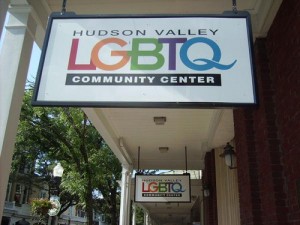A group of LGBT faculty and staff will soon put up an online survey addressing the campus climate in regard to sexuality and sexual orientation, which may translate to future revisions of protocol.
The survey, which will be up and running on Sunday, Nov. 6 at the latest, was prompted by the numerous gay suicides, committed on various college campuses in January this year. However, according to group member and Anthropology Professor Benjamin Junge, the group was particularly troubled by the suicides at Rutgers University in New Jersey, a school that is thought to be socially progressive with no perceived homophobia, similar to SUNY New Paltz.
“What happened at Rutgers was a real wake up call for us,” Junge said. “We realized that this institution has never in any systematic way learned about what its community members feel, believe and think about sexuality, sexual orientation and what if any negative experience sexual minorities have had on this campus.”
The survey organizers began meeting in the spring to brainstorm possible themes and topics. To help them with the creation of the survey, they researched reports and climate surveys from East Coast and West Coast schools. They looked at what other campuses had asked and put together a list of useful themes and survey questions. Over the summer, Junge and Lisa Ostrouch of the Office of Institutional Research and Planning met every week to actually develop the survey and reach a final draft, which has been piloted and put on an online platform.
The group has received “excellent feedback and great suggestions” from both the student Queer Action Coalition, who they did a focus group with, and President Donald Christian who officially endorsed the endeavor and has been supportive throughout the process, Junge said.
The survey, which is voluntary and anonymous, includes demographic questions such as race, sexual orientation, area of study and living situation, along with questions about participation in student life and feelings on sexuality.
“There are a lot of questions around your beliefs about sexuality, so there are even some provocative statements to get a sense of where you stand regarding homosexuality and transgender issues,” Junge said. “We’re more concerned with actual experiences that people have had, so there are more traditional questions like ‘have you ever seen someone bullied or intimidated,’ ‘has that ever happened to you?’ We have some specific questions for LGBTQ respondents as well.”
The survey will run through Nov. 28 and will be looked at in the spring with the help of Christian and a task force most likely appointed by him.
“One of the major responsibilities for that task force will be to analyze the data and to write a report with official policy recommendations for him,” Junge said.
While Junge and the others involved do not believe they will find too much overt homophobia, they still want to learn about where it is happening and what types exist, as they cannot “assume the campus is inclusive” until they have asked. Although the group doesn’t expect to uncover blatant homophobic behavior, Junge anticipates the discovery of a lot of hetero-sexism or heteronormativity.
“Hetero-sexism is the presumption of heterosexuality in campus policy, campus activities, campus life and teaching styles,” Junge said. “It is not homophobia;, it doesn’t mean you hate or are uncomfortable with gay people, but we view presumption of heterosexuality as potentially an issue to be addressed.”
Library Outreach Coordinator and group member Morgan Gwenwald hopes the survey yields a good response, to help foster a community that embraces differences and to gain a clearer idea of the campus climate and what needs to be worked on.
“I think it will increase visibility for LGBTQ people on campus and hopefully let us know things we might want to change or improve on our campus, examining a wide range of issues and areas,” Gwenwald said. “We hope it will be a positive contribution to an informed, ongoing conversation about diversity on our campus.”